
(6/7) Delivery Strategy to Schools
Atheist Ireland has used the Freedom of Information Act to examine more than 20 years of public records, describing how the Religious Education Curriculum at second level was created and delivered. What we have found is Church and State tightly entwined, in a process that overtly breaches the constitutional rights of parents and children. Documents obtained under Freedom of Information, reveal how this situation was arrived at, with the full knowledge of the constitutional rights that were being breached by both Church and State bodies.
Delivery Strategy to Schools
The details of this strategy should be of concern to anyone interested in ensuring the independence of the State Religious Education course, from the tenets of any one denomination. Initially, it is noticeable that the NCCA relied heavily on a formal role during the roll out of the course, for Roman Catholic “diocesan advisers”.
The NCCA strategy includes a formal recognition that “diocesan advisers serve only schools under Roman Catholic Management”. This is an overt statement that the Religious Education course is to be delivered differently to Catholic schools than to all other schools, which is not consistent with the obligations of the NCCA. Specifically, the NCCA had already agreed with the Department of Education, the constitutional considerations that required an “educational” course for “academic study”. They knew that any part of the course that involved faith formation according to denominational interests, would be explicitly unconstitutional and particularly when parents were not informed about this.
An example of how this contradiction was seen by specific schools was also evident when Micheál deBarra, Chairman of the Cork Religious Teachers Association, wrote to the NCCA on January 30th 1998. This letter included some questions on catechists and the role of liturgy and prayer within the new course.
This would have been a good opportunity for Anne Looney, the CEO of the NCCA, to explain that the State course is not intended to include Roman Catholic prayers prescribed by Roman Catholic diocesan advisers. In fact, when the question is asked “Will schools become the providers of academic RE only?”, the NCCA already had a large part of the answer to this question. With respect to the State Religious Education course, the NCCA had previously written to the Department of Education on 11th April 1995, stating that their course would be an “academic study” of religion. This was an agreed legal limitation on the course, as the Department of Education had already explained in detail (and the NCCA had already accepted) that anything denominational would be unconstitutional as it would discriminate against religious minorities and the non religious.
However, the response to the letter was somewhat different. The CEO of the NCCA did not explain the constitutional limitations that were already agreed for the course. It was not stated that the NCCA would be constitutionally prohibited from facilitating Roman Catholic catechists to teach Roman Catholic prayers within the context of the State Religious Education/Exam course. Instead, the CEO of the NCCA was happy to foresee a role for catechists and catechetics. No concern was expressed for the rights of parents to ensure that the teaching of their children was in conformity with their convictions or that the state is obliged to respect the rights of all.
The Guidelines for the Faith Formation and Development of Catholic students state that they are for Catholic students which means that the teachers are supposed to differentiate between Catholic students and students from minority faiths and the non-religious. This is simply an impossible task and cannot be achieved. In addition it undermines human rights and it obliges the student to reveal their convictions or lack of adherence to a particular faith. It would also mean that there would be a partial opt out from the course in place. This simply does not happen, as far as we are aware the course is made compulsory in most schools and parents are never informed that there is an opt out let alone a partial opt out.
This confusion between a State curriculum and the interests of one particular Church was also evident during a meeting of the Course Committee on 30th January 2003. During this meeting it was noted that the Mater Dei Institute would be responsible for developing the teacher guidelines for the course. The Catholic Archbishop of Dublin is the patron of the Mater Dei Institute.
Again, a State curriculum that should be delivered in a manner suitable for students of all faiths and none, is being implemented by an explicitly Roman Catholic organisation. It is also clear from the documents obtained by Atheist Ireland under Freedom of Information that these issues were not resolved as the course was rolled out. In fact, if anything the tendency towards Roman Catholic faith formation within the State curriculum for Religious Education, seems to be becoming more pronounced.
This specific issue was raised during a meeting of the Course Committee on 15th January 2009.
Attendees explicitly highlighted a supposed difficulty in avoiding “faith language” while delivering the State Religious Education curriculum, which is intended to teach about different religious beliefs. Again, rather than explaining that this would be totally unacceptable within the State Religious Education course that was supposed to be objective, and that it was a breach of the constitutional rights of parents and their children, the NCCA was entirely sanguine about the idea that “faith language” would be included within their course content. Again there was no discussion about informing parents what was going on.
Religious Books
The Religious Education Course Committee agreed Guidelines for publishers of the books to support the Religious Education syllabus. Unfortunately there was no document on file that outlined what exactly these Guidelines are. The NCCA has no control over how any publisher interprets the syllabus but according to a letter on file it does brief the publishers on the underlying principles of the course.
There is a letter from one Church of Ireland school in relation to the first book published non the second level Religious Education syllabus. Gill & MacMillan published “All about Faith”.
According to one Church of Ireland school this book was fragmented and sectarian and they could not understand why it was available for a religious education course that was supposed to be non-denominational.
The response from Gill & MacMillan is enlightening as it explains that the authors of “All about Faith”, explained that they did not regard the course as non-denominational but one that could be adapted by each denomination for its own school. They also went on to point out the “All About Faith” was written from a Roman Catholic perspective and that is why it carried the imprimatur of a Roman Catholic Bishop.
This means that a Roman Catholic Bishop must sanction any Religion book that covers the syllabus that is taught in schools with a Catholic ethos. This will of course include ETB Community schools and Designated Community Colleges. Non-designated Community Colleges are also obliged to have Catholic Religious education. For minorities that are forced to take this State Religious Education Course this means that they are obliged to purchase a religion book that is written from the perspective of the Catholic Church and approved by them. The Church of Ireland schools was sufficiently unimpressed with this to threaten withdrawal from the course.
Even according to the legal limitations that they prescribed for themselves, the NCCA have delivered a course which breaches the constitutional right of parents to respect for their convictions and the right to be free from religious discrimination. Atheist Ireland has obtained additional documents under Freedom of Information, which further describe how the State Religious Education curriculum produced by the NCCA was compromised.

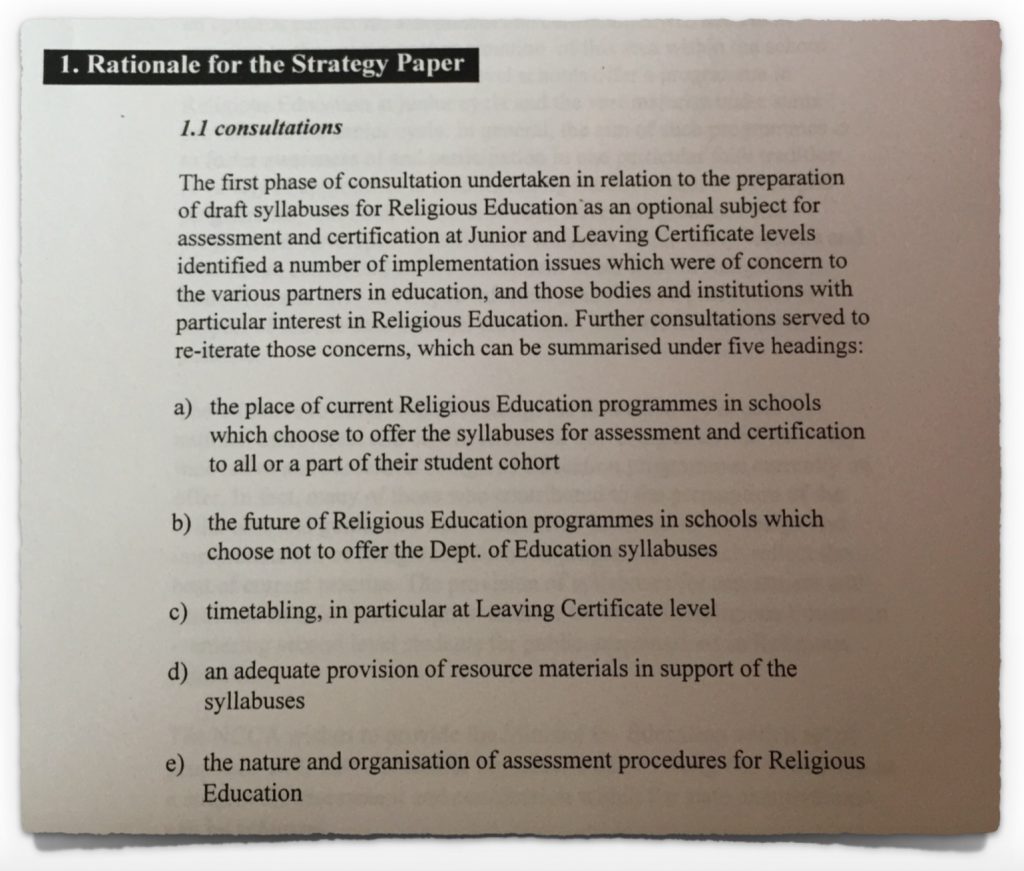
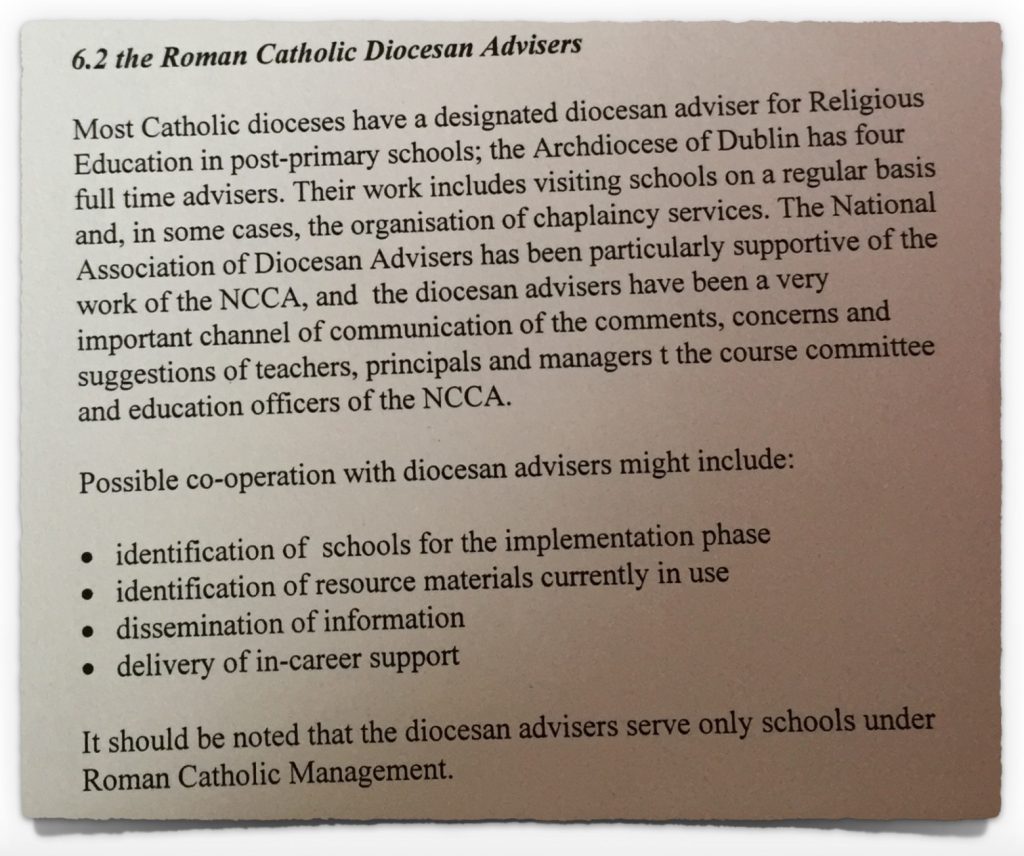


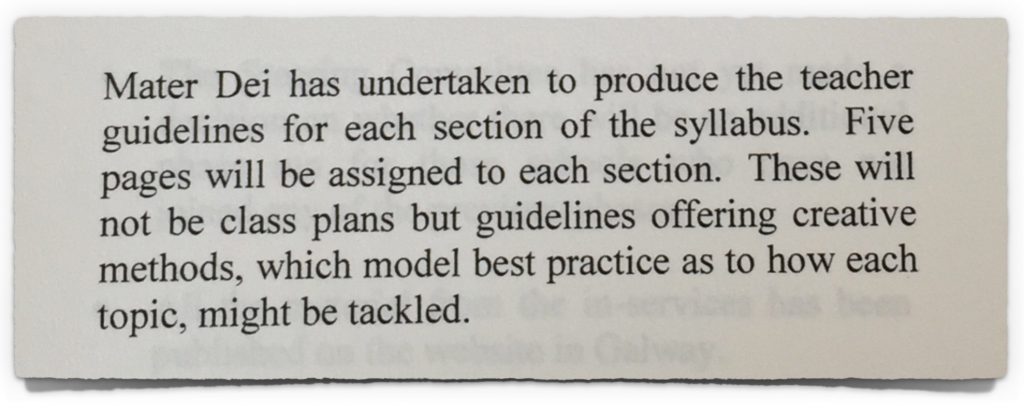
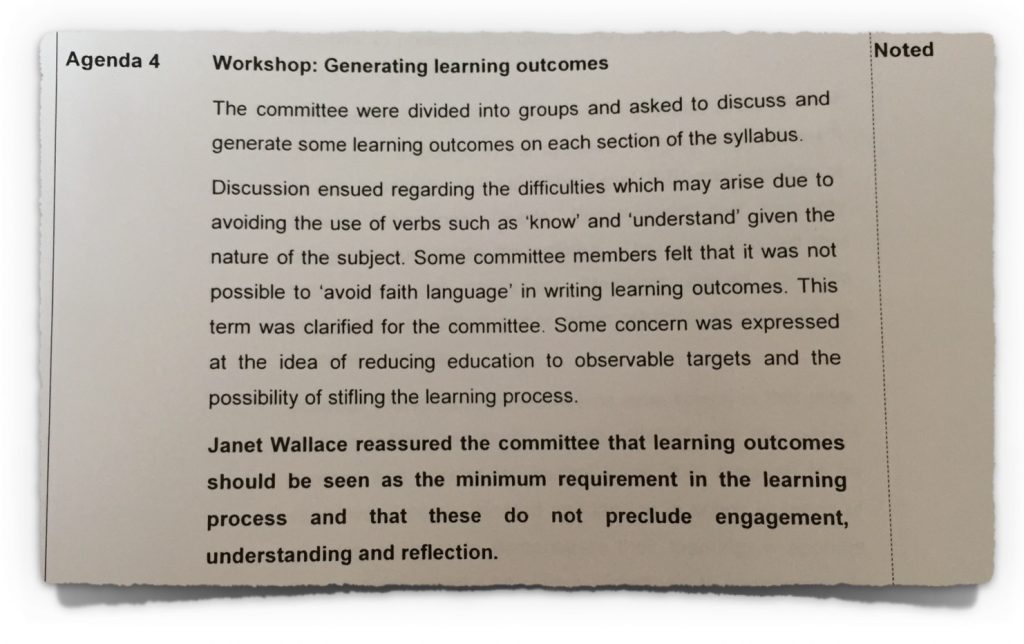
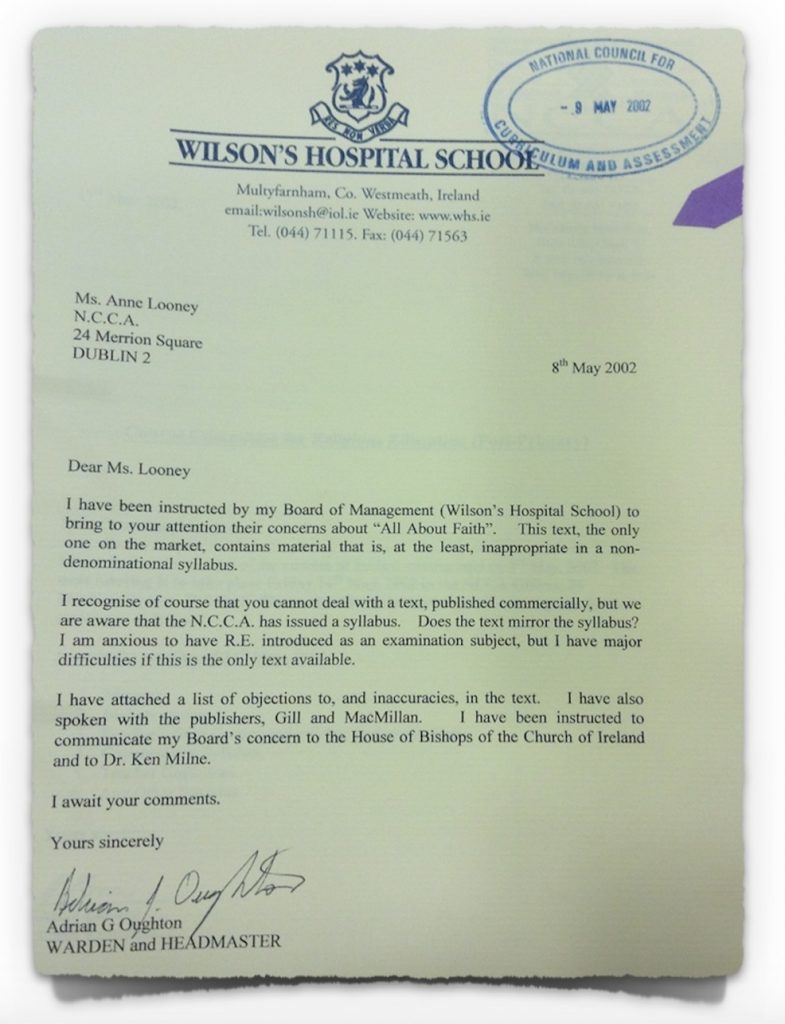
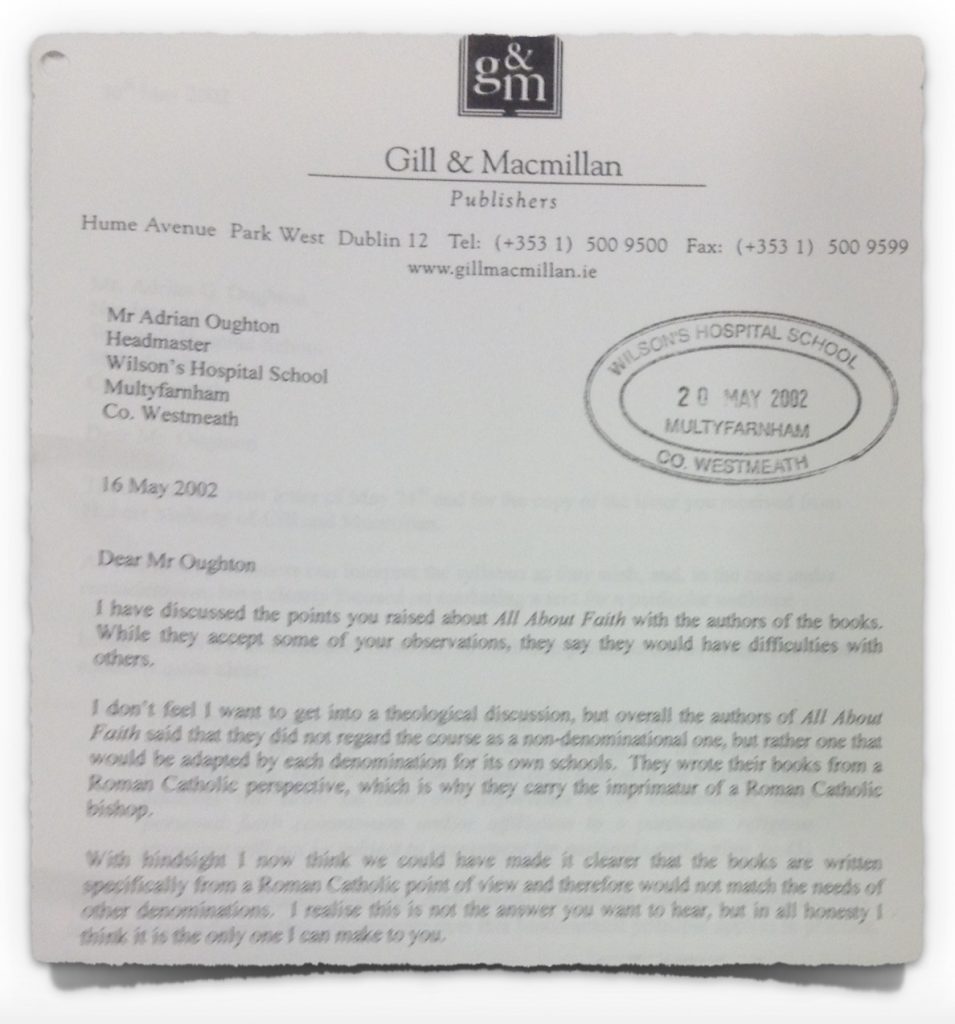
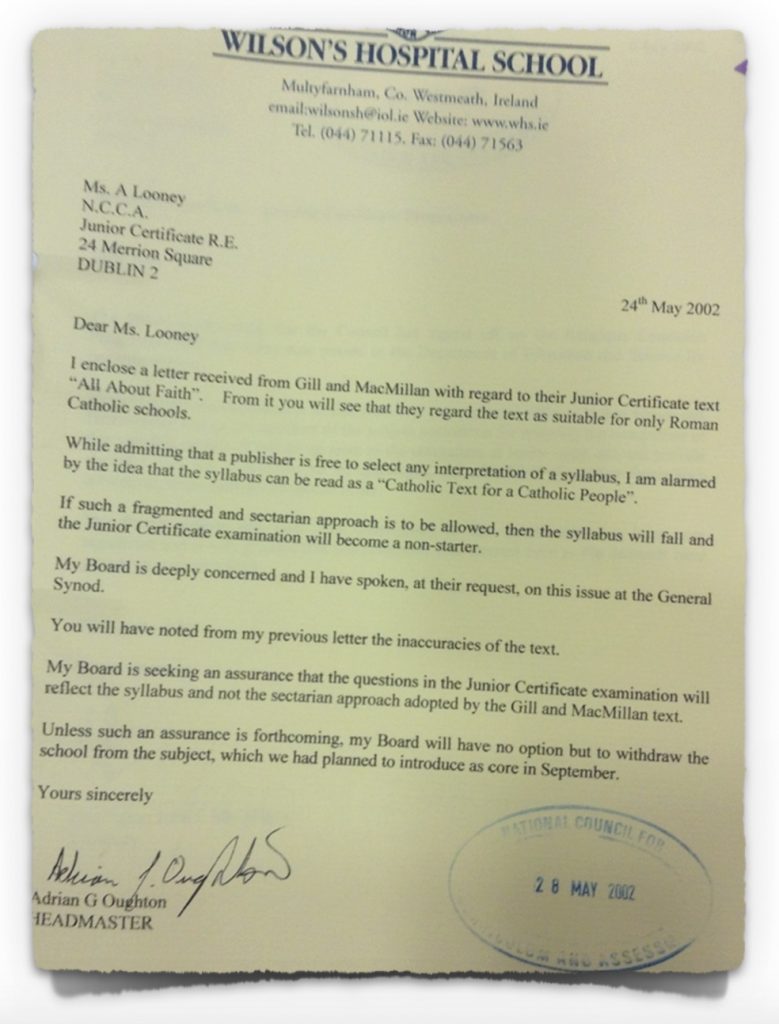






0 Comments
No comments!
There are no comments yet, but you can be first to comment this article.